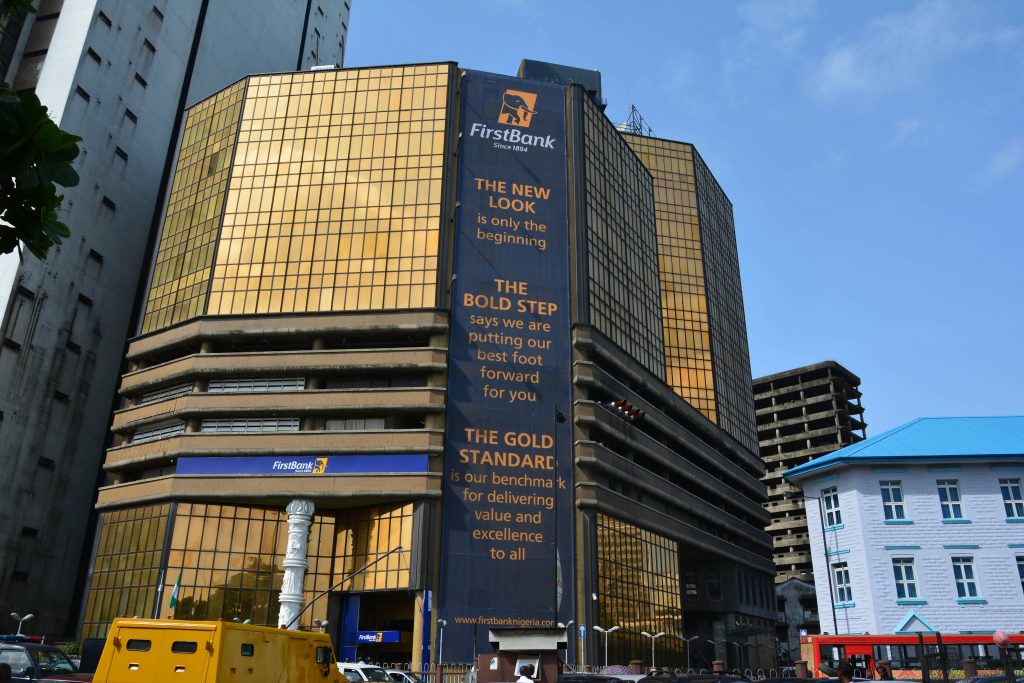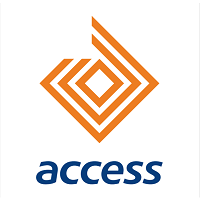brand
Onyeali-Ikpe’s Seven Point Agenda: Building A Future-Ready Fidelity Bank

 John C. Maxwell, an American author and speaker, is a widely acknowledged thought leader. Maxwell asserts in one of his most famous quotes, which encapsulates the true essence of leadership, “The pessimist complains about the wind. The optimist expects it to change. The leader adjusts the sails”.
John C. Maxwell, an American author and speaker, is a widely acknowledged thought leader. Maxwell asserts in one of his most famous quotes, which encapsulates the true essence of leadership, “The pessimist complains about the wind. The optimist expects it to change. The leader adjusts the sails”.
Fidelity Bank CEO, Mrs. Nneka Onyeali-Ikpe is leading the financial institution through a significant evolution of business culture with the primary objective of improving operational efficiency and expanding market share. Mrs. Onyeali-Ikpe is adjusting “the sails” to ensure that her colleagues at Fidelity Bank have the wind at their backs as they work toward common goals and individual successes.
Currently, Nneka has her sights fixed on positioning the bank as one of Nigeria’s leading financial institutions, which leverages automation and robotics to replace manual and repetitive processes. The global lockdown caused by the Covid-19 pandemic was a messenger unlike any other, signaling that Nigeria’s traditional and over-the-counter banking systems are no longer viable.
Since assuming office in January 1 2021, the bank’s first female CEO and MD, has outlined a seven-point agenda to move the bank further in its quest to become a tier-1 bank that is well-positioned to outlive the competition and serve well into the future.
Overview and timeline
Fidelity Bank’s seven-point agenda focuses on brand architecture, brand building and refresh, talent development and transformation, product and service delivery, agility and performance discipline, digital transformation, and regulatory compliance.
In accordance with this, here are the bank’s strategies for ensuring that it attains its objectives:
- The bank intends to embark on anInnovation Drivethrough the implementation of new processes, techniques. The bank is also executing fresh ideas to ensure continuous process improvement, reduce cost to serve, increase competitiveness, improve brand recognition and value, build new partnerships and relationships, drive turnover, and increase profitability.
2. Brand refresh with the aim to increase top-of-mind awareness of the Fidelity brand by external and internal stakeholders.
3. Workforce Transformation to create a future readily supported by a high performing and empowered workforce. This will be achieved by deepening the skills and competencies of staff across the bank, entrenching a culture of high performance, and embedding new ways of working in the bank. So far, the commencement of capacity building training for staff and senior management training are some of the initiatives implemented.
4. Service Excellence which is intended to build brand loyalty through personalized and seamless customer experience delivery. This is already underway with the award-winning virtual assistant IVY. This revolutionary chatbot handles simple tasks like account opening to complex tasks such as complaint resolution, bill payment, transferring users to a live agent, loans, fixed deposit applications, and answering random questions.
5. Digital Transformation involves an end-to-end digitization across all facets of the business. In line with this, the bank has launched a novel digital service —Pay Yourself —which revolutionized payday for salary earners and SMEs.
6. Performance Discipline to ensure focus on strong fundamentals, asset quality, and strategic cost management. Initiatives already carried out in this regard include;
– The Policy Familiarization Program —a capacity-building project geared towards building a knowledgeable and versatile staff network/raising subject matter experts in all business areas that kicked off in March.
– The One Culture Project- which was initiated to reinforce enabling behaviours and value systems towards fulfilling the bank’s goals
– Project Alpha- aimed at helping the bank develop a robust and holistic learning and development framework for all staff.
7. Accelerated Growth which will drive aggressive market penetration and business diversification. This will be achieved through deeper penetration in key retail markets.
Other initiatives geared towards deepening growth include; accelerated play in the SME segment, renewal of institutional banking, and drive for transaction-based propositions in corporate banking.
With this seven pronged agenda, Fidelity Bank is well on its way to leading the sector while revolutionizing Nigeria’s financial landscape.
brand
Body of Bank CEOs Delivers Critical Relief to Flood Victims in Niger State, Pledges Continued Support

 Pix 1 L-R: Registrar & Chief Executive of the Chartered Institute of Bankers of Nigeria (CIBN) Akin Morakinyo; Managing Director and Chief Executive Officer of Keystone Bank Limited, Mr. Hassan Imam; Group Managing Director/Chief Executive, Zenith Bank, Dame (Dr.) Adaora Umeoji; The Executive Governor of Niger State, His Excellency, Governor Mohammed Umaru Bago; Chairman, Body of Bank CEOs and Group Managing Director/CEO, United Bank for Africa (UBA) Plc, Oliver Alawuba; Managing Director Taj Bank Mr. Hamid Joda; and Secretary to the Government of Niger State (SSG), Alhaji Abubakar Usman during the donation of relief materials from the Body of Bank CEOs in Nigeria, aimed at supporting victims of the recent devastating floods in Mokwa Local Government Area held at the Niger State House in Abuja at the weekend.
Pix 1 L-R: Registrar & Chief Executive of the Chartered Institute of Bankers of Nigeria (CIBN) Akin Morakinyo; Managing Director and Chief Executive Officer of Keystone Bank Limited, Mr. Hassan Imam; Group Managing Director/Chief Executive, Zenith Bank, Dame (Dr.) Adaora Umeoji; The Executive Governor of Niger State, His Excellency, Governor Mohammed Umaru Bago; Chairman, Body of Bank CEOs and Group Managing Director/CEO, United Bank for Africa (UBA) Plc, Oliver Alawuba; Managing Director Taj Bank Mr. Hamid Joda; and Secretary to the Government of Niger State (SSG), Alhaji Abubakar Usman during the donation of relief materials from the Body of Bank CEOs in Nigeria, aimed at supporting victims of the recent devastating floods in Mokwa Local Government Area held at the Niger State House in Abuja at the weekend.
 The Executive Governor of Niger State, His Excellency, Governor Mohammed Umaru Bago; Chairman, Body of Bank CEOs and Group Managing Director/CEO, United Bank for Africa (UBA) Plc, Oliver Alawuba during the donation of relief materials from the Body of Bank CEOs in Nigeria, aimed at supporting victims of the recent devastating floods in Mokwa Local Government Area held at the Niger State House in Abuja at the weekend
The Executive Governor of Niger State, His Excellency, Governor Mohammed Umaru Bago; Chairman, Body of Bank CEOs and Group Managing Director/CEO, United Bank for Africa (UBA) Plc, Oliver Alawuba during the donation of relief materials from the Body of Bank CEOs in Nigeria, aimed at supporting victims of the recent devastating floods in Mokwa Local Government Area held at the Niger State House in Abuja at the weekend
Pix 3: L-R: Managing Director and Chief Executive Officer of Keystone Bank Limited, Mr. Hassan Imam; Group Managing Director/Chief Executive, Zenith Bank, Dame (Dr.) Adaora Umeoji; The Executive Governor of Niger State, His Excellency, Governor Mohammed Umaru Bago; Chairman, Body of Bank CEOs and Group Managing Director/CEO, United Bank for Africa (UBA) Plc, Oliver Alawuba; and Managing Director Taj Bank Mr. Hamid Joda, during the donation of relief materials from the Body of Bank CEOs in Nigeria, aimed at supporting victims of the recent devastating floods in Mokwa Local Government Area held at the Niger State House in Abuja at the weekend.
In a heartwarming display of corporate social responsibility and solidarity, a consortium of Nigerian Bank CEOs, has pledged significant support to alleviate the suffering of flood victims in Niger State
The Executive Governor of Niger State, His Excellency, Governor Mohammed Umaru Bago on Saturday in Abuja received relief materials from the Body of Bank CEOs led by its Chairman, Mr Oliver Alawuba.
The gesture is aimed at supporting victims of the recent devastating floods in Mokwa Local Government Area of the state.
Oliver Alawuba who is also the Group Managing Director/CEO of United Bank for Africa(UBA), led the delegation to the Niger State Government house Abuja, where they presented essential relief items, including bags of rice, beverages, vegetable oil, and mattresses, valued at millions of naira.
The devastating floods, which have affected thousands of families in the region, have prompted the banking community to come together in a show of empathy and support to those displaced and affected by the disaster.
In his address, Alawuba expressed the banking industry’s deep sympathy for the affected communities and reaffirmed their dedication to sustainable support while pointing out that the gesture underscores the banking sector’s commitment to corporate social responsibility and humanitarian intervention especially in times of crisis.
He said, “Today, we stand with the people of Niger State in their time of need. We want you to know that we feel your pain and we give you our firm resolve to assist in rebuilding lives. This donation is just the beginning; we pledge continued collaboration with the Niger State Government to ensure long-term recovery and resilience.”
Other top CEOs and executives at the presentation included by the Group Managing Director/Chief Executive of Zenith Bank, Dame (Dr.) Adaora Umeoji, the Registrar and Chief Executive of the Chartered Institute of Bankers of Nigeria (CIBN), Mr. Akin Morakinyo, Managing Director and Chief Executive Officer of Keystone Bank Limited, Mr. Hassan Imam; Managing Director Taj Bank Mr. Hamid Joda; Secretary to the Government of Niger State (SSG), Alhaji Abubakar Usman senior government officials, banking executives, and media representatives, marking a significant step in public-private collaboration for humanitarian relief.
Governor Bago, who received the relief materials on behalf of the state, commending the banking sector for its timely intervention.
“This gesture reinforces the critical role of private-sector partnerships in disaster response,” Governor Bago stated. “We are grateful for this support and look forward to deeper collaboration in safeguarding our communities against future challenges. On behalf of the good people of Niger State, particularly the affected families in Mokwa, I extend our sincerest thanks for this timely and compassionate intervention,” Bago stated.
“The recent floods in the state brought immense hardship to the people, displacing families, destroying livelihoods, and disrupting communities and the banking sector, under the leadership of Alawuba and his esteemed colleagues, has demonstrated that beyond financial stewardship, they are true partners in national development and humanitarian service.
This donation is not just about the physical items; it is a symbol of hope, resilience, and the unwavering support of Nigeria’s financial institutions in times of need. It reassures our people that they are not forgotten, the governor stated.
…
brand
FirstBank Wins Gold for Best Corporate University in Social & Climate Change Impact

 FirstBank, the West Africa premier bank and financial inclusion services provider, is thrilled to announce that its Corporate University, FirstAcademy, has been awarded the Gold Award for Best Corporate University in Social & Climate Change at the Global Council of Corporate Universities (GlobalCCU) Awards 2025.
FirstBank, the West Africa premier bank and financial inclusion services provider, is thrilled to announce that its Corporate University, FirstAcademy, has been awarded the Gold Award for Best Corporate University in Social & Climate Change at the Global Council of Corporate Universities (GlobalCCU) Awards 2025.
This highly acclaimed award recognises FirstAcademy’s outstanding commitment to driving social and climate change learning initiatives, aligning its learning and development programs with internal stakeholder needs, and promoting Corporate Social Responsibility (CSR).
The GlobalCCU Awards is a prestigious, biannual recognition of excellence in corporate universities, setting the highest standard for the industry. With a rich 12-year history dating back to its inaugural ceremony in Paris in 2013, the awards have consistently honoured outstanding Corporate Universities, learning and development structures worldwide. The GlobalCCU Awards celebrate institutions that create remarkable value for people, businesses, society and the planet.
FirstBank’s FirstAcademy exemplifies this mission by earning the Gold Award for Best Corporate University in Social & Climate Change at the 2025 ceremony in Paris, France. This distinction reflects FirstAcademy’s dedication to fostering sustainability and environmental responsibility; developing impactful learning initiatives that transcends traditional corporate training, with broader societal goals; integrating climate action into its portfolio and operations; expanding climate finance offerings and developing a climate action capacity building training program.
FirstAcademy was inaugurated in 2012 as the Bank’s designated corporate academy designed to provide structured talent development, knowledge management and culture change initiatives. One major objective of the academy is to equip staff with the requisite knowledge and skills required to deliver on the Bank’s strategic aspirations and to thrive in an ever-evolving work environment while contributing to social and environmental responsibility.
According to the Founder and Chairman of the GlobalCCU Awards, Annick Renaud-Coulon, “FirstAcademy is an outstanding Corporate University that is clearly the Best Corporate University globally for driving social and climate change learning initiatives.”
Congratulating FirstAcademy, the Founder and Chairman of the GlobalCCU Awards, Annick Renaud-Coulon, said “FirstAcademy is a very mature Corporate University which demonstrates a strong alignment with FirstBank’s vision of responsible banking and sustainable development, with clear support from senior leadership and a governance model that strategically connects learning to business priorities. Congratulations to FirstAcademy for setting a visionary standard in advancing meaningful social and climate change impact through learning and inclusive capacity building!”
In the words of Olayinka Ijabiyi, the Acting Group Head, Marketing and Corporate Communications, FirstBank “We are delighted to receive this international recognition for our efforts in promoting social responsibility and climate action. This award serves as a testament to our belief that businesses can be a force for good, driving transformation that extends beyond profit to create sustainable and equitable futures for all. FirstAcademy’s programs have not only enhanced employee skills but also contributed to the well-being of society and the environment.”
As FirstBank’s FirstAcademy continues to bridge the gap between corporate initiatives and community needs, it sets a leading example for corporate universities around the globe, inspiring others to follow suit in the quest for meaningful change.
brand
Access Holdings Topsin Asset Qualityin Proshare’s 2025Tier1 Banking Rankings


Access Holdings PLC has been ranked the Tier 1 bank
-
www.accessbankplc.comAccessHoldingsdemonstratedstrongfundamentalsacrossalltheseparameters.Itclosed Full Year 2024 with total assets of 41.5 trillion and a loan book of 13.1 trillion.₦ ₦The Group’scapitaladequacyratiostoodat20.46percent,whileassetgrowthfortheperiodreached55.49percent.Itscostofriskwasheldat1.25percent,netinterestmargin recorded at 6.80 percent, and earnings growth was an impressive 88.05 percent,all indicators of a business built on financial soundness and execution excellence.Speaking at the launch event, Olufemi Awoyemi, Chairman of Proshare, described thereport as a vital mirror into the shifting dynamics of Nigeria’s financial services industry.“AccessHoldingshasprovenitselfasastrong,adaptiveinstitution.Itsrobustcapitalbase, successful fundraising, and continental expansion efforts show a group that is notonlygrowingbutevolving.Asrecapitalisationreshapesthebankinglandscape,institutions like Access Holdings will continue to define the future of finance in Africa.”He further remarked on the nuance behind E
-

 news5 years ago
news5 years agoUPDATE: #ENDSARS: CCTV footage of Lekki shootings intact – Says Sanwo – Olu
-

 news2 years ago
news2 years agoEnvironmental Pollutions : OGONI COMMUNITY CRIES OUT, THREATENS TO SHUT DOWN FIRSTBANK,SHELL OIL COMPANY OPERATIONS FOR NOT PAYING COURT AWARD
-

 lifestyle5 years ago
lifestyle5 years agoFormer Miss World: Mixed reactions trail Agbani Darego’s looks
-

 health4 years ago
health4 years agoChairman Agege LG, Ganiyu Egunjobi Receives Covid-19 Vaccines
-

 politics2 months ago
politics2 months agoBreaking : Oborevwori , Okowa others dumps PDP, defects to APC
-

 lifestyle4 years ago
lifestyle4 years agoObateru: Celebrating a Quintessential PR Man at 60
-

 news1 month ago
news1 month agoBREAKING: Tinubu swears in new NNPCL Board
-

 health5 years ago
health5 years agoUPDATE : Nigeria Records 790 new cases of COVID-19


